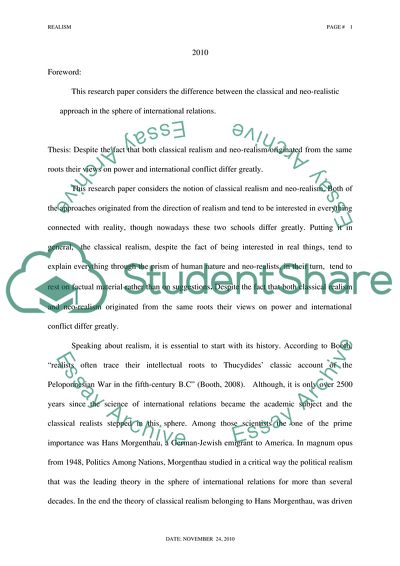Cite this document
(The Difference Between the Classical and Neo Realistic Approach Essay, n.d.)
The Difference Between the Classical and Neo Realistic Approach Essay. https://studentshare.org/sociology/1745164-outline-and-evaluate-the-different-forms-of-realism
The Difference Between the Classical and Neo Realistic Approach Essay. https://studentshare.org/sociology/1745164-outline-and-evaluate-the-different-forms-of-realism
(The Difference Between the Classical and Neo Realistic Approach Essay)
The Difference Between the Classical and Neo Realistic Approach Essay. https://studentshare.org/sociology/1745164-outline-and-evaluate-the-different-forms-of-realism.
The Difference Between the Classical and Neo Realistic Approach Essay. https://studentshare.org/sociology/1745164-outline-and-evaluate-the-different-forms-of-realism.
“The Difference Between the Classical and Neo Realistic Approach Essay”. https://studentshare.org/sociology/1745164-outline-and-evaluate-the-different-forms-of-realism.


